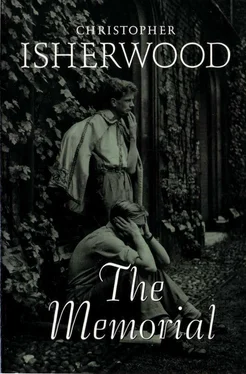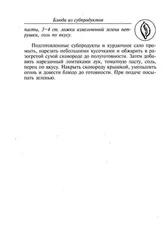Balefanio - tmp0
Здесь есть возможность читать онлайн «Balefanio - tmp0» весь текст электронной книги совершенно бесплатно (целиком полную версию без сокращений). В некоторых случаях можно слушать аудио, скачать через торрент в формате fb2 и присутствует краткое содержание. Жанр: Старинная литература, на английском языке. Описание произведения, (предисловие) а так же отзывы посетителей доступны на портале библиотеки ЛибКат.
- Название:tmp0
- Автор:
- Жанр:
- Год:неизвестен
- ISBN:нет данных
- Рейтинг книги:4 / 5. Голосов: 1
-
Избранное:Добавить в избранное
- Отзывы:
-
Ваша оценка:
- 80
- 1
- 2
- 3
- 4
- 5
tmp0: краткое содержание, описание и аннотация
Предлагаем к чтению аннотацию, описание, краткое содержание или предисловие (зависит от того, что написал сам автор книги «tmp0»). Если вы не нашли необходимую информацию о книге — напишите в комментариях, мы постараемся отыскать её.
tmp0 — читать онлайн бесплатно полную книгу (весь текст) целиком
Ниже представлен текст книги, разбитый по страницам. Система сохранения места последней прочитанной страницы, позволяет с удобством читать онлайн бесплатно книгу «tmp0», без необходимости каждый раз заново искать на чём Вы остановились. Поставьте закладку, и сможете в любой момент перейти на страницу, на которой закончили чтение.
Интервал:
Закладка:
Had Mother foreseen all that? She must have foreseen it. And how completely she'd been proved right. That was what I could never forgive her, Mary thought.
Nevertheless, she'd hardly been prepared for Desmond's note on top of the gas oven, one evening, just as she'd got back from a party. It must have been done quite on the impulse, like their elopement from Gatesley. He'd gone. Left London—gone abroad, as someone afterwards told her. The woman was an Austrian. They soon separated, Mary's informant said. Later, he'd come back, she heard, to London for a time. They didn't meet. He wrote, talking about divorce. She said that he must please himself. Did he want one? He never answered this—presumably because that particular reason for wanting one had fallen through.
It was a pity he'd felt that he must leave her. He had nothing to blame for it but his own conscience; and yet she had to admit that she'd been happier since. Even on that night, when she'd read his note and gone in to look at the children tucked up in their beds after she'd read it, she'd felt, yes, just for a second, in the middle of the awful shock, a little start of joy. Now I'm free. He'd left her everything. Why, he'd even left his old hat. And although, at first, life had been a nightmare that she'd have to write home and beg for money from Mother, she'd pulled round. She started the restaurant, and that had turned itself almost automatically into a gallery and a concert-room as well. And I'll start them all again, thought Mary—except the restaurant. I'm getting too old and lazy for that. The hymn ended at last.
The Bishop raised his hand, pronounced the benediction.
There was a pause. The buglers stepped forward. The Last Post blared out, setting echoes off among the trees. They blew like violent, ill-regulated toys—as if jerked by a strong spring. Mary thought of the cuckoo clock they used to have in the nursery when they were children, which always burst out of the door late—a few seconds after the hour. In the silence there was one explosive cough. A train whistled. Rooks cawed. A dog barked. A car went past along the road with a raucous screech. Nothing was silent except the black crowd. They waited for the Bishop to give the silence its end. To Mary's impatience, it seemed that he dawdled, as Richard had sometimes priggishly dawdled over nursery grace, knowing that she wanted to get down from the table. At last he turned. It was over.
They sang "God save our gracious King."
And now Lily took Father's arm and approached the Cross. Ramsbotham followed, awkwardly carrying the wreath. The Bishop, surrounded by the choir, had barely made his retreat from the scene.
It was a coup d'etat, as Mary saw it. She heard
somebody murmur: "Old Mr. Vernon," and another, "t'old Squire." Lily had done the trick. She had produced Father at the service and vindicated his honour and the honour of the Hall before the village. She had asserted his claim to be chief mourner. Here he was. Nobody made any protest, although a voice audibly asked: "Who's t'old maan?" Father shuffled up to the step of the Cross. Lily turned to Ram's B, who handed her the wreath. She gave it to Father, and Mary thought he would promptly drop it. But no, he rose to the occasion. He managed to hook his fingers round the wreath for an instant, crushing the lilies, and advance one pace, before he half laid, half dropped it on the Cross before the tablet bearing his son's name. Then he stood still for a moment, facing the Cross, perhaps uncertain what to do next. It was understood that he was praying. Father's ponderousness had had its usual effect upon his audience. They were impressed. Mary, with a vaguely protective instinct, had followed the three of them out from the crowd. She was conscious of Eric and Anne just behind her. She didn't know whether she wanted to sink through the earth or merely to laugh. Then Father turned. She stood aside, anxious not to lead the procession. She took her place on his left, Lily on his right. Eric and Anne had executed a sort of flanking movement. They confronted the crowd, and Father looked up and slowly round from face to face as he lurched
and shuffled forward. Mary felt rather than heard the admiring comments:
"Isn't he wonderful?"
"He must be a great age."
"Ee, look!"
"He can walk without a stick, and all!"
Mr. Hardwick came forward to receive them. The crowd opened to let them pass out to the carriage. Other people moved forward to lay their wreaths on the Cross.
Mary saw that Lily was radiant with triumph.
"The old gentleman was wonderful, wonderful!" Mr. Hardwick was telling her.
Mr. Askew, in a dickey and a sort of Eton collar worn under his coat, came forward and shouted in Mr. Vernon's ear:
"It's grand to see you about again, sir. It's quite like old times."
John grunted and said something like: "Awa ga ga, wa ga."
Mr. Askew beamed with pleasure:
"I was just telling your father that this is quite like the old times."
Ramsbotham had screwed his eyeglass back into his inflamed eye. Perhaps owing to some extraordinary scruple of delicacy, he hadn't worn it during the service. And he was so relieved, poor man, that it was all over.
"Can I give you a lift home?" he asked Mary. "I've got the car." ...
"You can, with pleasure. I was just wondering if we'd missed the bus. That is, on condition you stay to lunch. You'll probably meet your family."
I suppose I'm as near as Ram's B can hope to get to the Vernon family today, she thought— calculating whether they'd possibly got enough to eat in the house. Is there a reflected glamour about me? How thrilling. Tomorrow night we'll have to keep going on cheese and salad, unless I send Maurice out to cadge a meal in the village. Which she'd done before now, successfully.
Mr. Vernon made further noises, Lily acting as interpreter:
"Ercurumber yerfther."
"Mr. Vernon says he can remember your father, Mr. Askew."
"Can you really, sir? Can you indeed?"
Lily turned from Mr. Askew to thank Ramsbotham for bringing them the wreath.
It's very interesting, thought Mary, to watch the tricks which a girl cultivates when she first comes out sticking to her when she's nearly middle-aged. Lily still opened her eyes very wide when she talked to men. (But no, thought Mary, that's spiteful.)
"I really don't know what we should have done if you hadn't been on the spot."
Ram's B was absolutely as red as a villa, blurting out about it being:
"A pleasure, Mrs. Vernon, I assure you."
"You must come and see us again soon." Oh, there's no doubt about it, thought Mary, Lily is a little brute. That can't be mere stupidity. Or does she really like him? Good God.
What would Gerald say, and Tommy, to all this —if they knew? Gerald and Tommy, who probably prized their bachelor existence with their father in that tumble-down country house swallowed up in the outskirts of Stockport. There was no garden except a few grimy shrubs round the warehouses of the mill. No place to amuse themselves except the mill reservoir, on which they had a punt. What would they say to a stepmother and the end of their outings to Manchester—for one couldn't see Lily with them at the Midland, where Ram's B put up
his eyeglass at every pair of legs in the room------?
And their whole life—breakfast at lunch-time, Ram's B getting home from doing deals in Edinburgh or London overnight, having slept on the train, wrapped in newspapers, with a temper like a skinned snake, going out in pyjamas to have a row with a foreman, with a tea-cup full of whisky in his hand? What would she think of Gerald, who ran after every girl in the neighbourhood, though he was barely seventeen? They'd both got round their father to take them away from school. They told him some amazing yarn about their weak hearts. He was quite unable to deal with them. He yelled and cursed, and occasionally, when tight, would throw a bottle at their heads. Once they'd
Читать дальшеИнтервал:
Закладка:
Похожие книги на «tmp0»
Представляем Вашему вниманию похожие книги на «tmp0» списком для выбора. Мы отобрали схожую по названию и смыслу литературу в надежде предоставить читателям больше вариантов отыскать новые, интересные, ещё непрочитанные произведения.
Обсуждение, отзывы о книге «tmp0» и просто собственные мнения читателей. Оставьте ваши комментарии, напишите, что Вы думаете о произведении, его смысле или главных героях. Укажите что конкретно понравилось, а что нет, и почему Вы так считаете.





